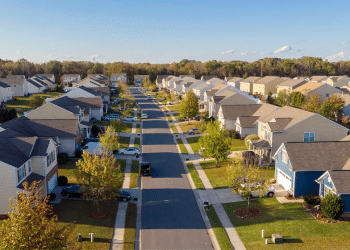Table of Contents

More and more people are looking into investing in rental properties for many beneficial reasons. Rental properties diversify your real estate portfolio as an investor, and you have the ability to earn extra income— even passive income! But like with anything, investing in a rental property comes with a lot of responsibilities. Whether you’ve invested (or are looking to invest) in a residential property or a commercial property, as the property owner and manager, you are the landlord. This means that it is up to you to keep your tenants happy so that you can continue to earn money.
Investing in Rental Properties
As mentioned above, rental properties are really good investments, but only if you’re in a good financial situation and you’ve done all of your research on investing. You should know the difference between residential (single-family/multi-family homes) and commercial (businesses) properties. You should also be able to decide whether investing in a commercial property or a residential property— or both— is best for you. In addition to all of that, you should know what you’ll be responsible for as a property manager of any type of property.
Landlord Responsibilities
Follow all laws set by cities and states.
There are many responsibilities as a landlord, and if you’re a landlord of multiple properties in different cities and states, this is especially important. It’s no secret that laws vary among states, but they can also be different among cities within the same state. What may or may not apply in one place can be almost opposite in another place, so make sure that you’re fully educated on your responsibilities in each location and for each type of property.
Keep an open line of communication with all tenants.
No tenant likes it when they can’t get in touch with their landlord, or if they feel like they’re being ignored. As a property manager of any type, as long as you have tenants, you’ll be interacting with them at some point. Most leases require landlords to give tenants a direct line of communication, whether it be by phone or email. Other responsibilities that fall under communication include an accurate listing of property amenities and luxuries, a notice of an increase in rent, and a notice of eviction.
Resolve any maintenance issues.
As a landlord/property manager, when something major breaks down or isn’t working properly, it’s your responsibility to see that it gets fixed. This doesn’t mean that you have to fix it yourself, as you should definitely call a professional to make sure the repairs are done correctly. A responsible landlord should practice good property maintenance.
Provide a habitable environment.
This applies to all landlords, property managers, and even short-term rental hosts. Every tenant is entitled to a safe and sanitary living space that has (or can house) basic amenities— unless stated otherwise, as hosts listing their homes as a rental spot can get away with stretching some of these rules if noted in their listing.
When looking into a property to rent, you should make sure that the property meets all building codes and regulations, so that it’s safe for dwelling. Many people invest in fixer-uppers that require renovations, so be extra certain that the finished product is safe and habitable for tenants.
Conclusion
The responsibilities of a landlord are many and demanding, so several property owners (of both residential and commercial properties) opt to hire property managers or property management companies. These companies have experts who know the ins and outs of managing properties, from effective tenant communication to setting and collecting rent.
In fact, most owners of commercial properties use property managers, but owners of residential properties enlist the help of a property manager— especially if the investor has multiple properties. Investing in a property manager is a cost in itself, but it can help relieve you of the many responsibilities that come with being a landlord.







